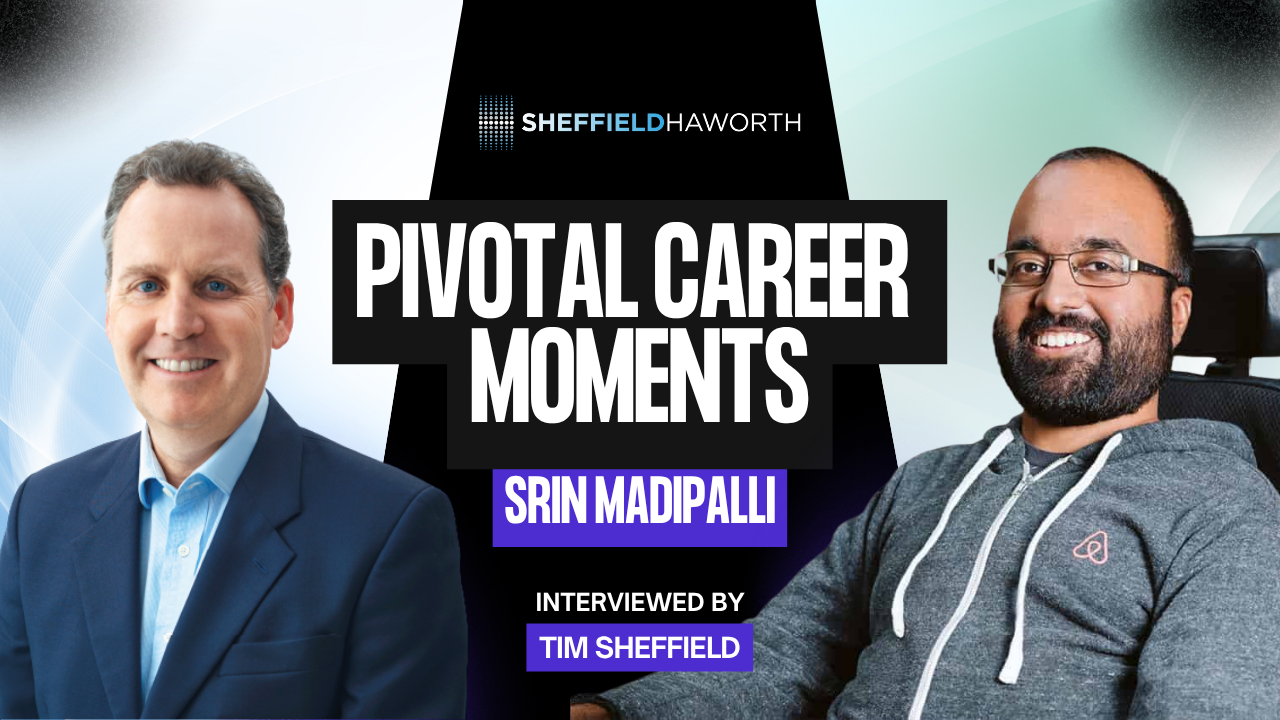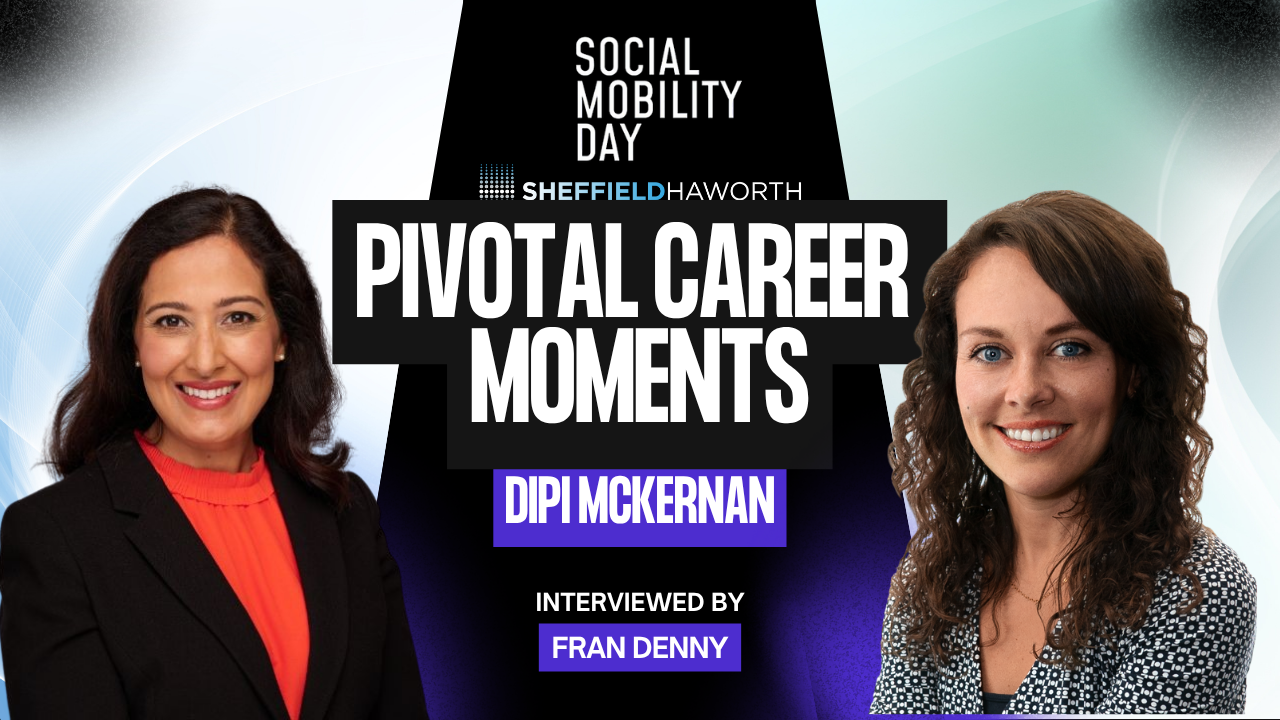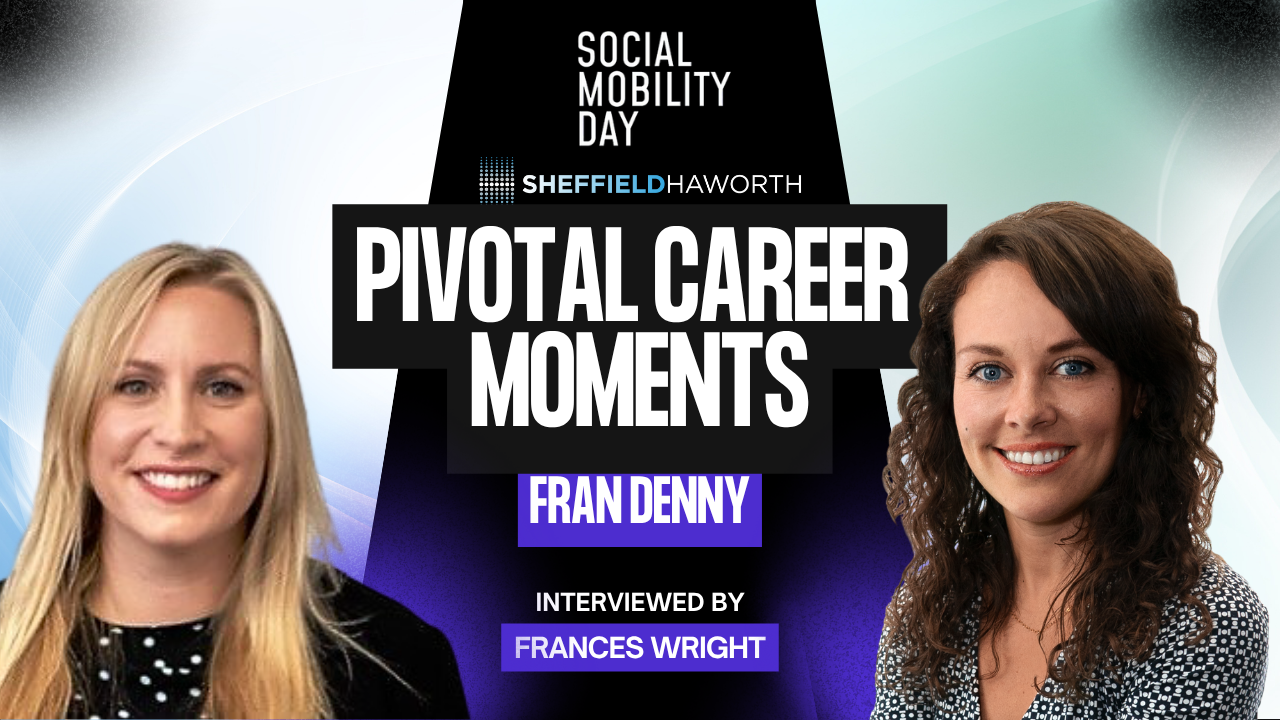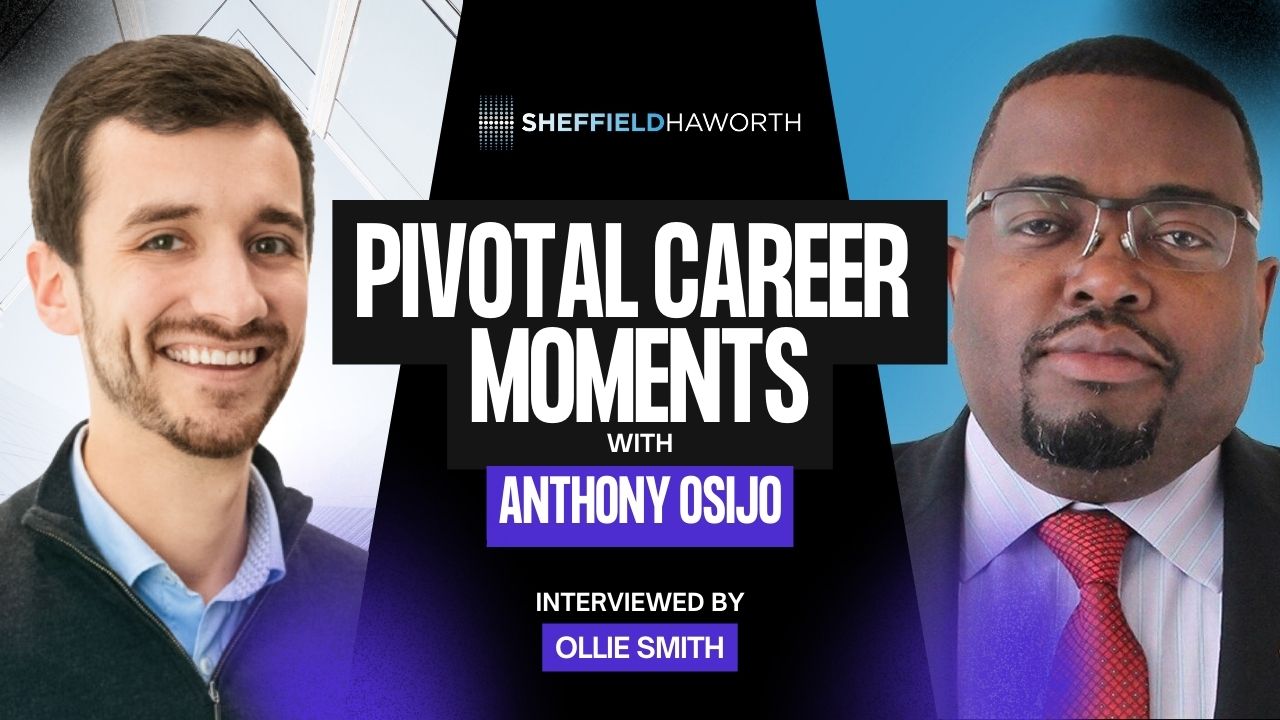In 2015, Srin Madipalli founded the tech startup Accomable to be the Airbnb/Expedia of accessible travel for disabled travellers. In 2017, he sold the company to Airbnb, and worked for the tech firm in San Francisco and London for three years.
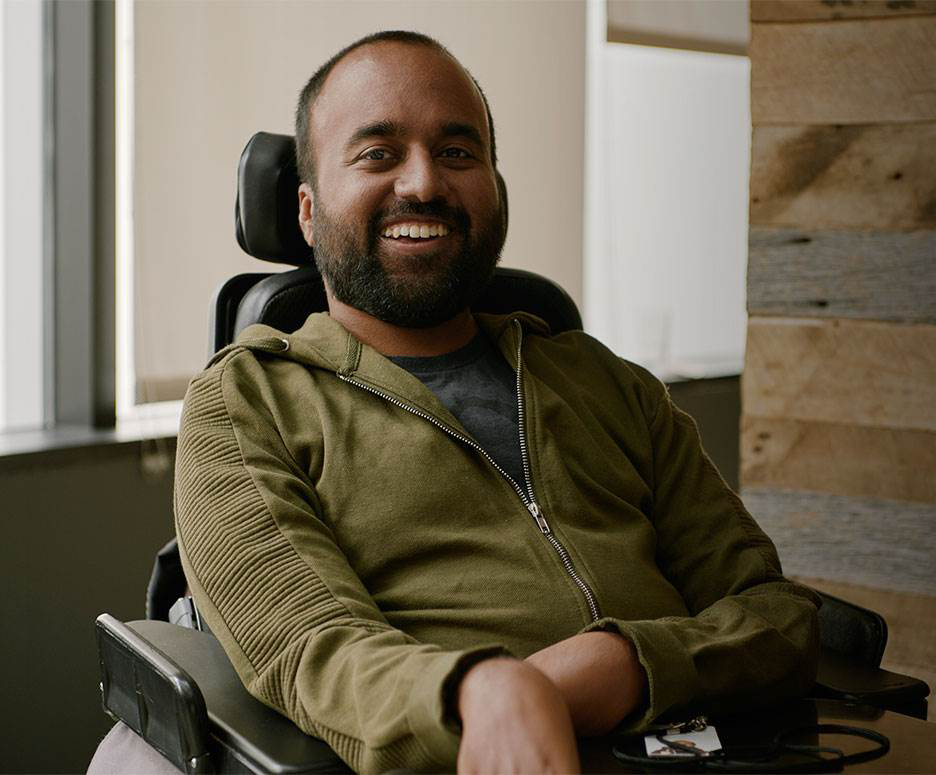
Now an angel investor for tech startups in London, Madipalli is working on launching a new tech startup venture of his own with the former CTO of Accomable.
Steve Morrison, Managing Director of SH Gillamor Stephens, caught up with Madipalli to discuss his career, what he’s planning next, and what organisations can do to be more accessible both for disabled customers and employees.
Q: How did you go from studying genetics to becoming a tech entrepreneur?
A: After my studies in genetics, I discovered that I didn’t enjoy doing lab work. By contrast, the City was booming and I wanted to find a way to access that excitement and glamour. I had a feeling that law could be an interesting way in for me, so I studied that.
I qualified at a firm called Herbert Smith Freehills LLP and ended up working on M&A there until 2012. When I completed my training contract in 2010, I took some leave to go travelling (before restarting at the firm as a qualified solicitor). This was fun and inspiring, but as a wheelchair using traveller it was also quite difficult at times, and I remembered this later.
After my travels, I decided to do an MBA at the Said Business School at Oxford. An MBA is a great thing to do when you’re not entirely sure what you want to do with your career. It’s a great way to learn new skills and be around smart, inspiring and ambitious people. That was the reason for doing it – to seek out new opportunities, and to gain a more complete knowledge of business.
“I got the desire to build something that I and fellow wheelchair users might find useful when travelling.”
While doing my MBA I discovered a passion for coding and tech and started spending a lot of my time learning to code. After I graduated in 2014 from the Said Business School I was doing lots of ad hoc consulting assignments making apps for people.
That was great for learning and I enjoyed it. But more and more I began to look into what I could build for myself. Going back to my travel experiences in 2010-11, I got the desire to build something that I and fellow wheelchair users might find useful when travelling.
I’d been dabbling in this area running a travel blog with a friend who has the same disability as me. We would go to places and write reviews of them from an accessibility standpoint. All these reviews got a lot of interest and suggested that it wasn’t just me and a few friends who had this problem. Lots of people experienced it.
I asked myself: can I build something that solves this problem? This was in 2015 when I built the first version of Accomable. Because there was such a demand but it was so little catered for, the app really took off.
Q: Did you build Accomable with the goal of being acquired?
A: I think the worst companies are those that start by only thinking about their exit. The best ones start because they want to solve a problem. If they solve the problem well, someone down the line may come and say, “I want your solution too”.
“We had that very bloody-minded singular focus. We shut out all the other noise and distractions and focused on solving the problem…”
You have to have that singular focus on problem solving and caring about the problem you’re solving, as well as the users you’re trying to help. So we had that very bloody-minded singular focus. We shut out all the other noise and distractions and focused on solving the problem for wheelchair users.
That’s why we were good at what we did. We ended up raising a round of funding from angel investors, through to being one of the leaders in this sector, and then Airbnb acquired us in 2017.
Q: How was that process? Was it relatively straightforward?
A: I don’t think any acquisition is straightforward, and we weren’t even looking to be acquired. We were actually doing an independent fund raise and, during that, an intro was made to Airbnb’s team. At first the discussion was around investment, and then it evolved into a discussion about them buying Accomable.
With any acquisition there are so many different pieces of the puzzle you have to put together. We wanted to make sure that the deal worked for the team, for our users, and our investors.
Then there were the talks around post-integration and how we would work for Airbnb once acquired. It took months of negotiation, starting with the initial conversations in June 2017 and closing the deal around November that year.
As part of the deal, I relocated to their HQ in San Francisco, and help build out what we did with Accomable into a new category within Airbnb for accessible accommodation.
Q: What did that experience give you?
A: Being at Airbnb was a massive learning experience. I had never worked at a big tech company before. Very quickly I realised this was a new set of challenges in terms of working out how to get things done in a big organisation.
“It was inspiring being able to work alongside people who had done amazing things not just at Airbnb, but also other amazing tech companies.”
It was certainly inspiring being able to work alongside people who had done amazing things not just at Airbnb, but also other amazing tech companies. You’re in the heart of Silicon Valley where all the big tech companies are based and within a 20-minute walk you can see the HQs of all these companies that have completely transformed the world.
However, I’m a founder at heart. I like building and making things. At Airbnb the slower pace of a large organisation could be frustrating when trying to move things forward and getting multiple other stakeholders on board.
Within a year I was beginning to miss that frontline grafting. When you are working in a large organisation in big tech you start to lose that connection to users, just because there are so many layers between you and them. By the end of the first year my thinking had moved more towards setting up the infrastructure for them, putting the right team in place and setting the direction of travel to let others take the work forward.
That also aligns more with my skillset. I’m better at getting things up and running rather than optimising them over a long period.
Q: What’s next for you? Are you looking to start another venture?
A: I came back to the UK just before the pandemic at the beginning of 2020 and I left Airbnb at the end of 2020. At the moment, I split my time into two separate things. About a third to half of my time is angel investing.
I’m one of the more active angel investors in London, as I’m very keen to pay it forward and help startups in the same position that I was in five years ago.
For the rest of my time, I teamed up with my old CTO at Accomable and we’ve been working on a whole bunch of AI-related projects. We’ve been prototyping lots of different ideas, trying out a whole bunch of things to see what we can do with various AI technologies.
Q: Are you still interesting in developing new technology for people with disabilities?
A: Yes, completely. I’m always open to seeing good investment pitches on opportunities in this area. But I think it also is the kind of area where there’s a need for a lot of advocacy. There’s a lot of low hanging fruit in terms of what existing companies can do to better enable disabled people to use their products. My work in this area has been more on the advocacy side rather than the investment side.
Q: How could technology companies do more to enable opportunities in their businesses for people with disabilities?
A: There’s always more that can be done. The likes of Apple and Microsoft have made a good start and have been doing some pioneering things. But a lot of the work companies are doing is very ad hoc, and often driven by a few motivated individual employees at a firm. That can drive progress, but what happens when these individuals leave? The initiatives dry up.
“Given how dependent people are on some of these tech platforms, I think it’s only becoming more important to improve their accessibility.”
Given how dependent people are on some of these tech platforms, I think it’s only becoming more important to improve their accessibility. It’s a similar story for companies making their working environments more accessible. Again, many companies have made efforts in this direction, but it’s all very piecemeal.
I think organisations need to think about how to institutionalise some of this work so it is less dependent on a few specific impassioned individual employees to drive it. One of the things I was very pushy about at Airbnb was making sure we were creating performance criteria around accessibility and tailoring people’s performance reviews around this work, for example.
Beyond that, firms should create accessibility as a function within the business in its own right. That turns it into a career track and a specialism, which will help it to become institutionalised. If we can get to the point where this practice becomes commonplace, that’s when we’ll start to see lasting and sustainable progress in this area.

